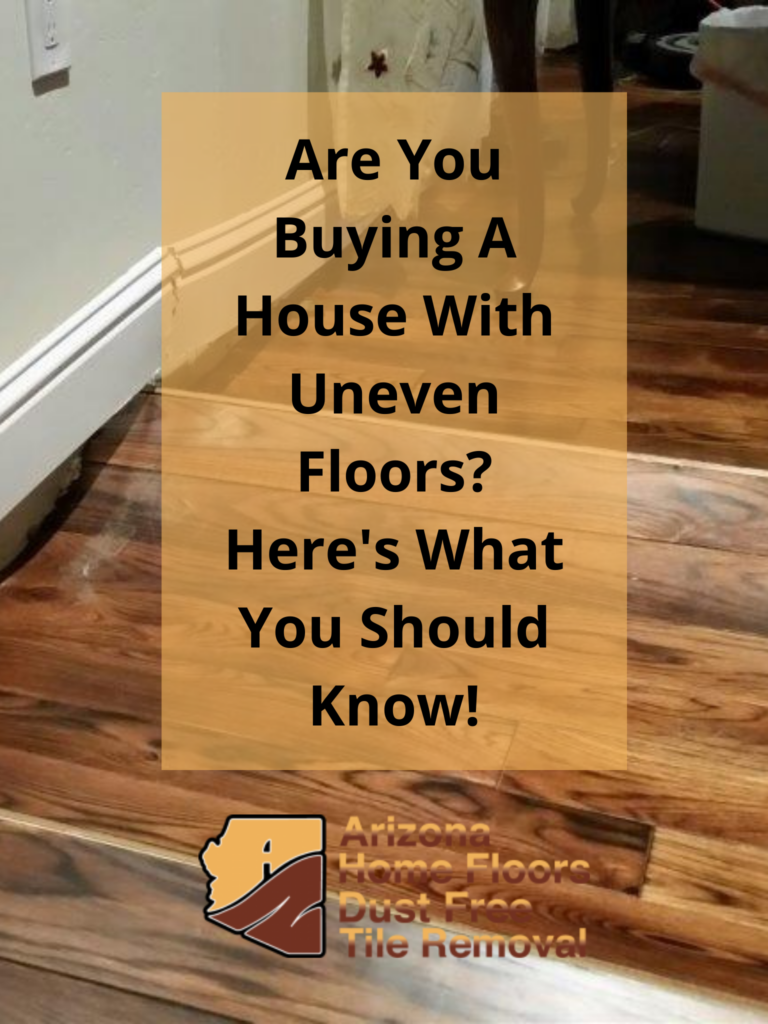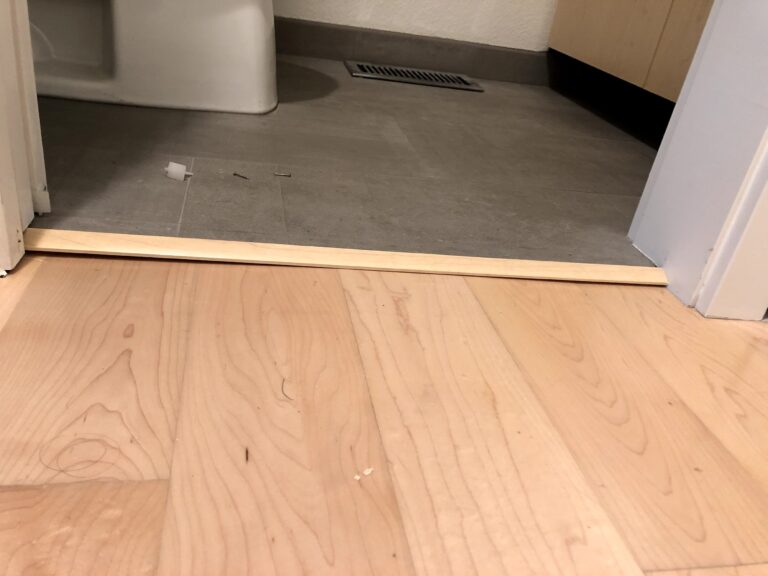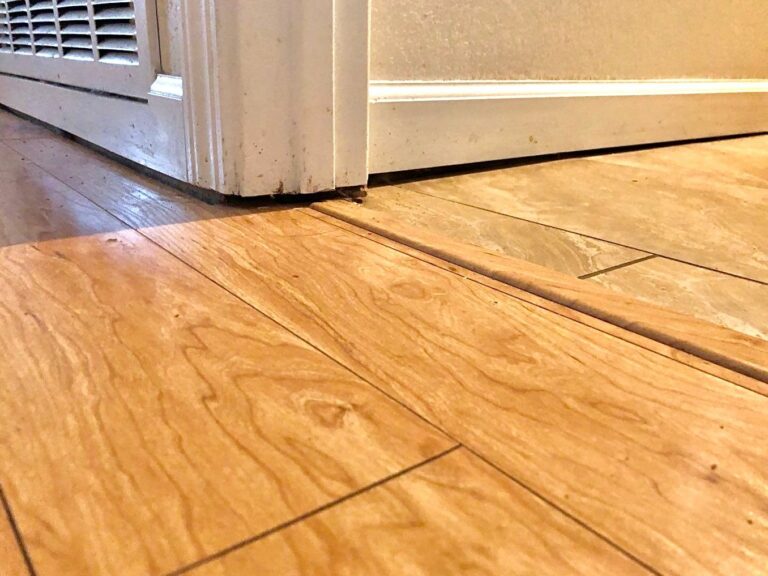Buying a House With Uneven Floors?
Weigh Out the Pros and Cons Before Making the Final Decision
By: Arizona Home Floors

Buying a house is one of the most expensive investments in a person’s lifetime. Purchasing a house with uneven floors may save you some money, but you should be extremely cautious when making such a decision. On the other hand, just because you come across a house with uneven floors, you shouldn’t be in a hurry to write off the property.
There are many factors to consider when investing in a house with uneven floors. This article provides information on what you should consider when buying a house with uneven floors. Follow along with Arizona Home Floors for the inside scoop and everything you should know if you are buying a house with uneven floors.
Do You Need Floor Leveling Services?
What Causes Uneven Floors?
These are the Three Main Causes That Result in Uneven Floors Overtime

An uneven floor is any floor surface that bounces, sags, buckles, or slopes. Uneven floors are most common in old homes because the home’s foundation shifts over time. For example, it may take about 15-20 years for a foundation to shift and the floors to become uneven. But there can be other reasons for uneven floors. If your potential new property has uneven floors, you should get a home inspector to evaluate the property and find the root of the problem.
3 Common Factors That Lead to Uneven Floors Over Time:
1. Foundation Issues
Foundation or structural damage can be a major cause of uneven floors. If you invest in a house with uneven floors due to foundation issues, you may have to spend thousands of dollars to fix the problem. In fact, structural damage is one of the most expensive problems to repair. Structural damage includes issues such as roof framing, bearing walls, and floor framing.
These issues will cause the home’s floors to warp due to the weight of the problem. A weak foundation can be a threat to the integrity of your home. Bouncy floors, floors that slope in one direction, and windows or doors that stick are the red flags that help you to identify foundation issues. You should work with a building professional to evaluate the extent of damage and fix the problem.
2. Too Much Moisture
Water damage is another common cause of sloping or uneven floors. Water can seep in from a wide variety of sources including leaky pipes. In fact, too much moisture can damage the sub-flooring and wooden beams that support the structure of your home.
3. Ground Movement
Ground moves over time. Unfortunately, the ground can move your foundation with it. It causes the floor of your home to warp. That is where soil compaction is important. In fact, home builders should compact the soil beneath the foundation to prevent the house from shifting over time. If you plan to invest in a house with uneven floors without foundation damage, you should consult a flooring specialist to restrain future sloping of the floor.
https://www.azhomefloors.com/floor-grinding/
Do You Need Floor Leveling Services?
How To Assess the Risk of Buying a House With Uneven Floors?

You are the best person to decide if buying a house with uneven floors is worth the risk. The best way to assess the risk of investing in a home with uneven floors is to seek professional help from a qualified home inspector. Once you have an idea of the extent of damage underneath the uneven floors as well as the estimated cost of fixing it, you will be able to make an informed decision. For example, if there are only small cracks in the foundation, you may go ahead with the home sale. But if the foundation damage is significant, it may not be worth your investment after all.
Related Post: How Concrete Leveling Adds Value to Your Home
Important Factors to Consider Before Buying a House with Uneven Floors
You are the best person to decide if buying a house with uneven floors is worth the risk. The best way to assess the risk of investing in a home with uneven floors is to seek professional help from a qualified home inspector. Once you have an idea of the extent of damage underneath the uneven floors as well as the estimated cost of fixing it, you will be able to make an informed decision. For example, if there are only small cracks in the foundation, you may go ahead with the home sale. But if the foundation damage is significant, it may not be worth your investment after all.
1. Uneven Floors Are Common in Older Homes
Unless you prefer to invest in an old or historic home, uneven floors may not be your choice of property. It’s important to remember that uneven floors are more common in older homes or homes older than 15 to 20 years. But structural issues are common in some states including Texas due to how the ground moves.
Before you run away from investing in a home with uneven floors, check if it’s the norm in your area. The best thing is to hire a home inspector to evaluate the property and know why the floor has become uneven. If it isn’t a major problem, you can go ahead with your decision of investing in a home with an uneven floor.
2. Consider The Type of Foundation of The Home
If the home inspector thinks there is a problem with the foundation of the home that you plan to buy, the next step is to calculate how much it will cost to solve it. The repair cost may depend on the extent of damage to the foundation. Slab and pier-and-beam foundations are the two most common types of foundations out there.
In fact, pier-and-beam foundations are common in older homes. They are less expensive to repair since you can easily access the beams of the foundation. The typical homeowner should expect to pay between $2,000 to $8,000 for foundation repairs. Look at the type of foundation of the home before you decide to buy a home with uneven floors.
Related Post: Importance of Proper Floor Surface Preparation
3. More to Worry About Than Just Your Foundation Issues
Most people think structural problems are only foundation issues. But foundation issues are not the only structural problem you should worry about when investing in a home with uneven floors. In fact, structural issues are everything that’s connected to the structure of the property. For example, bearing walls, roof framing, floor framing, and beams are some of the other structural issues in a home.
In fact, floor framing and floors are some of the toughest problems to diagnose since anything can cause such issues. Even if your foundation is perfect, flaws in load-bearing walls can cause a second-story floor to sag over time. You should be aware of these issues when investing in a home with uneven floors.
Related Post: The Importance of a Super Level Floor
4. Wall Crack Patterns That Accompany the Slopes!
Some wall cracks may indicate an ongoing problem with the home. You should inspect the interior door frames that are set in partition walls, parallel to the joist runs. Make sure to look for diagonal crack patterns that extend from the top corners of the doorway. Hairline cracks are not a big issue. But newer and larger cracks may indicate a bigger problem.
For example, if the home has a bathroom next to the sloped floor room, look at the wall tiles in the bathroom. In fact, ceramic tiles can crack easily. Hence, they are good indicators of movement. If the house has a new bathroom with large cracks in the wall tiles, you should know that the floor movement has worsened since installing the new bathroom. Work with a building inspector to evaluate the property before investing your hard-earned money in such a home.
5. Structural Fixtures Can Add Up
When you decide to buy a house with uneven floors, you should consider the hidden costs that you may have to accrue when repairing the damaged materials. For example, if you have to replace a beam with water damage, you may not know the cost of extracting the piece and replacing it until you clear the surrounding area. In some cases, the cost of repairing uneven floors may not be worth it for the homeowner. You need to take all repair expenses into consideration when planning to buy a house with sloping floors.
Hire an Expert Before Buying a House with Uneven Floors
The most important thing is to hire an expert before investing in a home with uneven floors. A qualified home inspector can walk you through the process of buying a home with uneven floors. If you choose to move forward with the purchase o0f a house with uneven floors, know that Arizona Home Floors can help fix this problem. Contact our team if you live in the Phoenix area or the surrounding cities. For related topics, news, and the latest trends, make sure to check out our blog.
I just brought a house just about 3 months ago, and I just realized that the floor is uneven, so what should I do about that. Please help
Call a foundation company. I have that issue. I had jacks put in cost me 7k. I need moisture barrier cost is 5k. Trying to sell house on 1.62 acres of land. I am trying but not hopeful and to make matters worse, the house is mortgaged.
So get an inspector and foundation expert.
Do u have anything in California
Thank you for the great post! The tip about assessing the cause of uneven floors before deciding is really helpful. It’s a crucial step to ensure you’re not overlooking potential issues. I’ll definitely keep this in mind when house hunting!